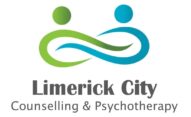“The conflict between the will to deny horrible events and the will to proclaim them aloud is the central dialectic of psychological trauma.” – Judith Lewis Herman
Stress is a natural part of our behavior. In the short term it can be a healthy reaction to situations and trauma. However, continuous stress will have a severe negative impact on your life.
Sometimes, when we are under an extreme amount of stress, we can find that in the moment we can cope. After the extremely stressful situation has resolved we can feel anxious, tired, unsettled and overwhelmed. Although this is a normal reaction, it is recommended that those feelings are explored.
Visiting a counselor can help identify and explore the root cause of the stress. A counselor can help you develop the skills to cope and manage stress.
Post-Traumatic Stress Disorder
Post-Traumatic Stress Disorder (PTSD) can occur after a perceived near-death experience has occurred. PTSD may also occur after experiencing other traumatic events such as the loss of a loved one. Sufferers of PTSD can experience flashbacks, hypervigilance, depression, panic attacks, social anxiety, agoraphobia and outbursts of anger.
Symptoms usually begin early, within 3 months of the event. Not talking about the events can have an extreme negative impact in the long run. If you or a loved one are experiencing PTSD, it is highly advised to talk about it with a counselor.
Negative Coping with Trauma
You may be relying on alcohol or drugs to cope. In the short term it may appear to help. However in the long run it can develop into an addiction. Using drugs and alcohol to cope with what has happened also avoids the issue of actually confronting what has happened. It is important to confront the issue and talk about what you experienced.
If you are finding you are coping with trauma in such a way, it is highly advised to visit a counselor or talk to a close friend or family member.
